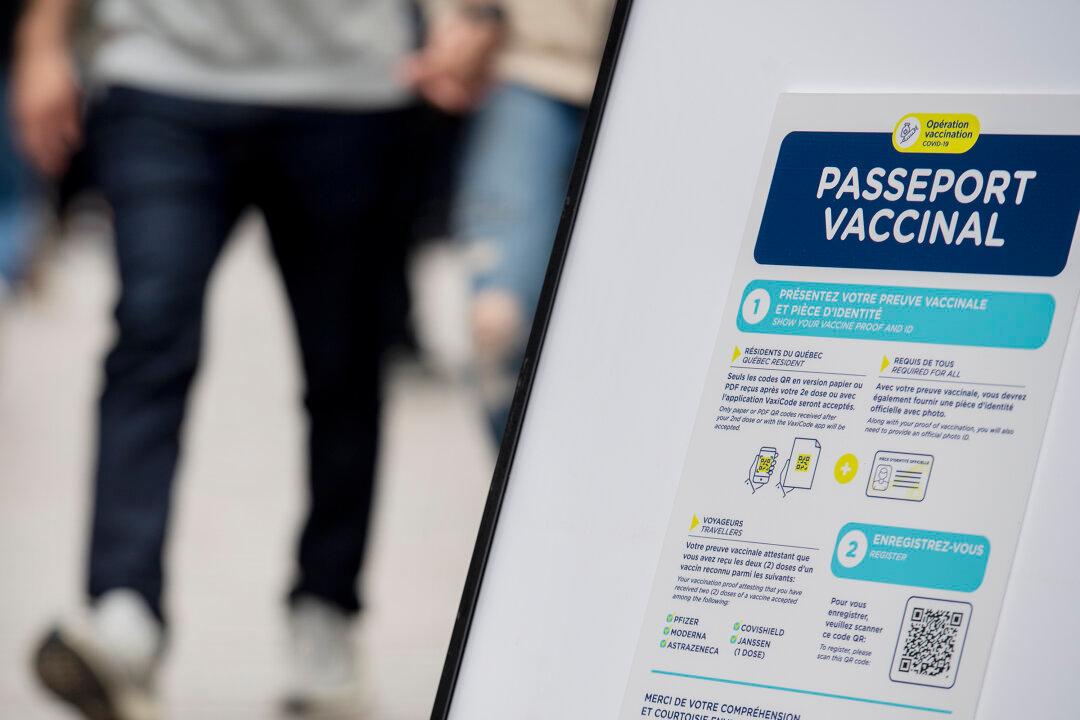Government-issued vaccine passports convinced a minimal number of people to get COVID-19 shots, accounting for less than 1 percent of people in Quebec and Ontario, according to a peer-reviewed study.
The passports, which were required for many people across Canada to enter any activity the government deemed non-essential—such as going to restaurants, movie theatres, swimming pools, concerts, sports, and bars—resulted in a rise of only 0.9 percentage points in the vaccination uptake rate in Quebec and 0.7 percentage points in Ontario, said the paper, “Impact of a vaccine passport on first-dose COVID-19 vaccine coverage by age and area-level social determinants in the Canadian provinces of Québec and Ontario: an interrupted time series analysis.”





